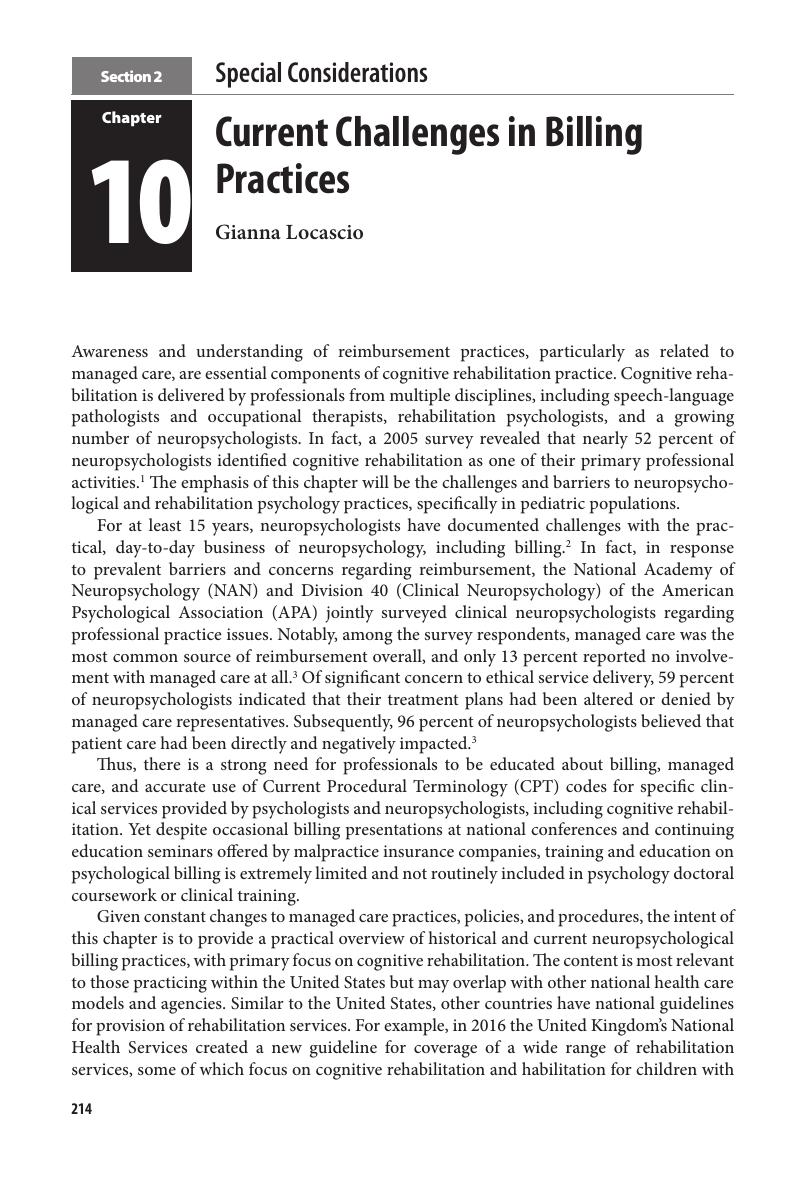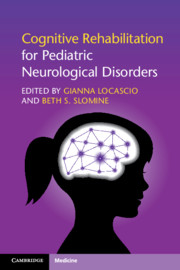Book contents
- Cognitive Rehabilitation for Pediatric Neurological Disorders
- Cognitive Rehabilitation for Pediatric Neurological Disorders
- Copyright page
- Contents
- Contributors
- Preface
- Acknowledgments
- Introduction
- Section 1 Evidence-based Cognitive Rehabilitation
- Section 2 Special Considerations
- 8 School-based Interventions
- 9 Transition to Adulthood
- 10 Current Challenges in Billing Practices
- 11 Advocacy in Service Delivery
- Index
- References
10 - Current Challenges in Billing Practices
from Section 2 - Special Considerations
Published online by Cambridge University Press: 25 June 2018
- Cognitive Rehabilitation for Pediatric Neurological Disorders
- Cognitive Rehabilitation for Pediatric Neurological Disorders
- Copyright page
- Contents
- Contributors
- Preface
- Acknowledgments
- Introduction
- Section 1 Evidence-based Cognitive Rehabilitation
- Section 2 Special Considerations
- 8 School-based Interventions
- 9 Transition to Adulthood
- 10 Current Challenges in Billing Practices
- 11 Advocacy in Service Delivery
- Index
- References
Summary

- Type
- Chapter
- Information
- Cognitive Rehabilitation for Pediatric Neurological Disorders , pp. 214 - 240Publisher: Cambridge University PressPrint publication year: 2018

